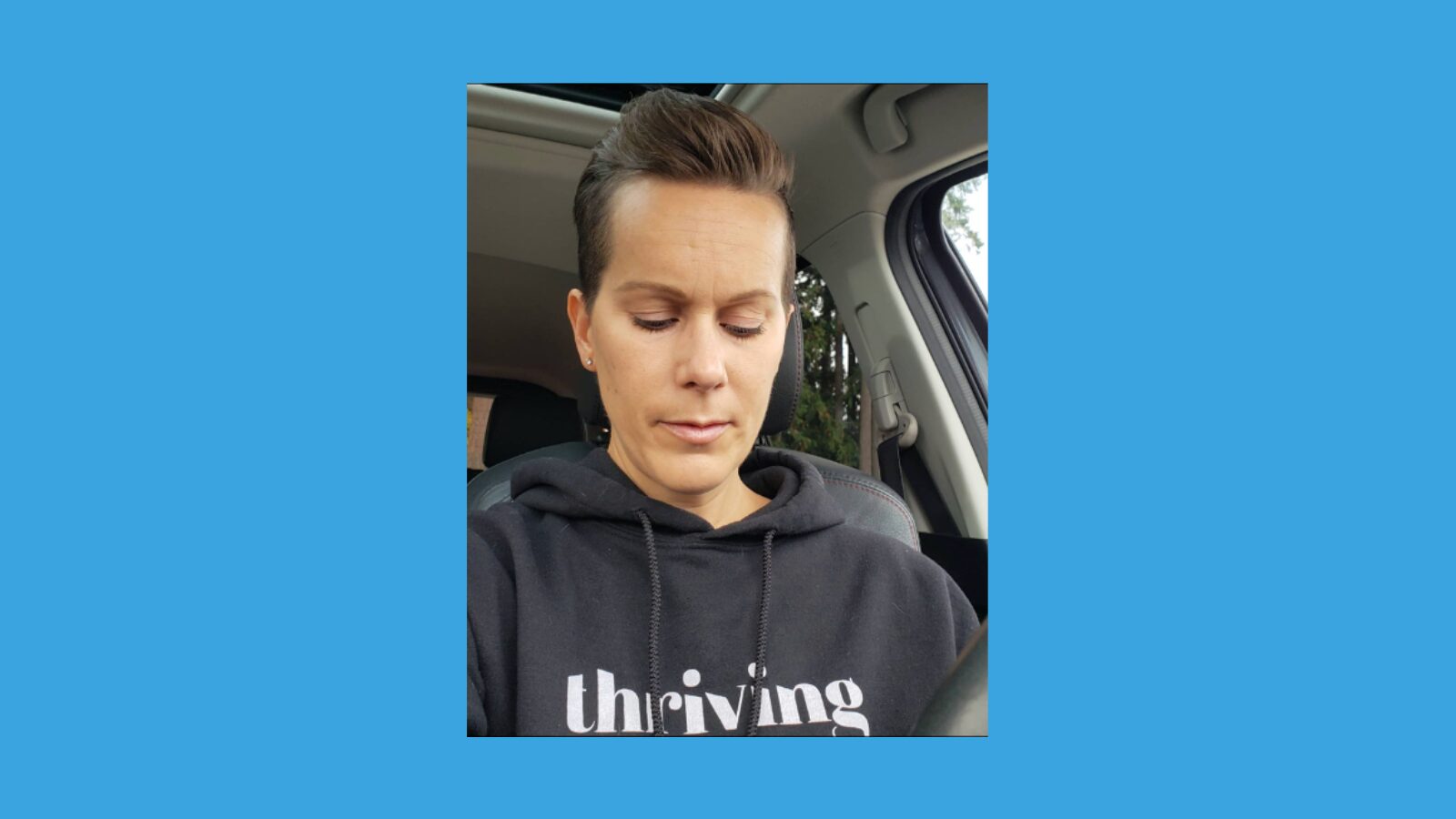Navigating Drug Access Issues with MBC in Canada
4 MINS to read

My name is Kim Angell and I am a metastatic breast cancer thriver, patient advocate and avid hiker from Vancouver Island, BC. I was originally diagnosed with stage 2 hormone positive breast cancer in 2016 and was nearing the 5-year mark when my life came crashing down. On March 12, 2021, I found out the cancer had returned as metastatic with multiple lesions scattered through my spine, hips and ribs. I was young, healthy, and felt like I was just starting to put the thoughts of cancer behind me. Yet, suddenly I was now having to face my own mortality at just 38 years old.
My life quickly changed from being focused on advancing my career to focusing on keeping myself alive. I suddenly found myself entrenched in the world of MBC, educating myself on the disease, what treatments were available, finding connections and stories of hope from others while also being faced with the harsh reality as I watched this disease take their lives.
I was quickly thrown back into the life of a cancer patient, this time as a forever patient, and was put on what was considered to be the latest and greatest treatment for hormone receptor positive disease. I was encouraged by the advances in research and the fact that others like me were living with this disease for over 5+ years. A bittersweet glimmer of hope in the grand scheme of things.
As I went through a series of scans though following my diagnosis, I found out that the cancer wasn’t just confined to the bones, it had now spread to my liver as well. I advocated to have a liver biopsy done to determine if the cancer was still hormone positive even though I was told that it was rare to lose receptors. After an unsuccessful biopsy attempt and more progression in my liver, they went in a second time and were able to finally get the sample they needed.
My stomach dropped as I read the pathology report – the cancer had lost all hormone expression and I had now flipped to triple negative disease with a much poorer prognosis. It’s already hard enough going through this disease knowing the average median survival for MBC patients, but knowing that I now had triple negative disease felt like an immediate death sentence. It’s not only a more aggressive breast cancer subtype, but it also meant I no longer had access to targeted therapies such as CDK4/6 inhibitors and hormone therapies. My only option at this point was chemotherapy.
Chemotherapy would kill the rapidly dividing cancer cells, but also kill other healthy cells. It brings side effects like the trauma of losing my hair, dealing with chronic skin and nail infections, and struggling to absorb any nutrients due to the lining of my gut being damaged from treatment — chemotherapy is not the option that gives me the best quality of life. All of this added to an already traumatic experience.
So, I tried desperately to get on a clinical trial but faced a series of roadblocks. Since I had been previously treated for MBC, I was excluded from numerous trials despite having a completely different subtype. I lost hope as the doors kept closing on me, feeling like I was being excluded from access to potentially life extending medications because of my own unique situation with MBC.
I began running out of time. The cancer was progressing rapidly in my liver and I risked it spreading elsewhere in my body being off treatment for weeks but what felt like an eternity. I ultimately had to accept the fact that I could not access these same treatments that others had access to in neighbouring countries due to the length of time that it was taking to be approved through our medical system and due to the restricting nature of the inclusion/exclusion criteria of these trials.
I often wonder if I had access to immunotherapy, if it would have provided another treatment option and extended my overall survival. Worrying with the limited amount of treatment options for MTNBC, that I will run out of treatment options one day. That my team will have to face me one day and tell me that they’ve done all they can do but there’s nothing else available. It’s a devastating reality knowing that I still have so much fight in me left but that I could reach the end one day because there was one less option to give me more time. — Kim Angell
Kim originally wrote this profile as part of Rethink’s submission to CADTH for Keytruda for MTNBC in July 2022.